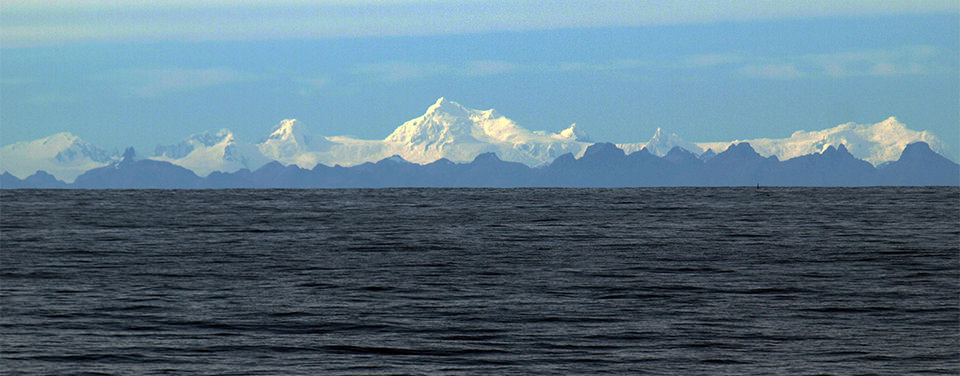The Balance of Power: Understanding Oceans and the Law of the Sea. Learn about The fascinating world of oceans & The law of The sea in The Balance of Power. Gain a clear understanding of this complex subject without getting lost in jargon. Dive into this conversationally written book & explore The wonders of our vast oceans like a human. Not a robot.
The Ocean and the Law of the Sea | United Nations World Oceans Day 2020
The Balance of Power: Understanding Oceans and the Law of the Sea The Ocean and the Law of the Sea | United Nations World Oceans Day 2020 The Balance of Power: Understanding Oceans and the Law of the Sea
The Balance of Power: Understanding Oceans and the Law of the Sea
Our planet is covered with vast oceans. Which play a crucial role in supporting life and maintaining the balance of ecosystems. Understanding the oceans and the laws that govern them is essential for ensuring their sustainability and protecting the delicate balance of power that exists within them.
The Law of the Sea refers to a body of international law that regulates the rights and responsibilities of nations in their use of the world’s oceans. It encompasses various aspects such as navigational rights. Territorial waters. Exclusive economic zones. And the protection of marine resources.
One of the key principles underlying the Law of the Sea is the notion of the balance of power. This concept recognizes that all states. Regardless of their size or level of development. Have equal rights and responsibilities in relation to the oceans. It ensures that no single country can exert excessive control or dominance over marine resources. Thereby promoting fairness and preventing conflicts.
The Importance of the Law of the Sea
The Law of the Sea is crucial for several reasons. Firstly. It provides a legal framework for resolving disputes between nations regarding the use of marine resources. By establishing clear rules and procedures. It helps to prevent conflicts and promote peaceful resolutions.
Secondly. The Law of the Sea promotes sustainable development and the preservation of marine ecosystems. It sets guidelines for the exploitation of marine resources and ensures the protection of vulnerable species and habitats.
Thirdly. The Law of the Sea is essential for the promotion of international cooperation and collaboration in oceanrelated activities. It facilitates scientific research. Promotes maritime trade. And ensures the safety and security of maritime navigation.
Key Features of the Law of the Sea
My Experience with the Law of the Sea
As someone who is passionate about the environment and the preservation of our oceans. I have always been interested in the Law of the Sea and its implications for the sustainable use of marine resources. I have attended several conferences and workshops where experts discussed the various aspects of the Law of the Sea and its practical applications.
One of the most impactful experiences I had was when I participated in a research expedition to study coral reef ecosystems in an exclusive economic zone. The expedition was only made possible through international collaboration and adherence to the principles of the Law of the Sea. It highlighted the importance of international cooperation in protecting and conserving our oceans.
The Role of International Organizations
International organizations such as the United Nations (UN) and the International Maritime Organization (IMO) play a vital role in the implementation and enforcement of the Law of the Sea. The UN website on oceans and the law of the sea provides valuable resources and information on this topic.
Visit the United Nations website to learn more about the Law of the Sea and its significance in promoting sustainable development and the protection of our oceans.
Conclusion
The Law of the Sea is crucial for maintaining the balance of power and ensuring the sustainable use of our oceans. By establishing clear rules and promoting international cooperation. It plays a crucial role in protecting marine resources and preserving the delicate ecosystems that depend on them.
Visit EasyBuy to explore a range of products that support sustainable living and environmental conservation.

To cover The topic “The Balance of Power: Understanding Oceans & The Law of The Sea,” The following is a set of FAQ questions & answers generated based on The People Also Asked (PAA) section from Google search:
What is The concept of The balance of power in relation To oceans & The law of The sea?
The concept of The balance of power. In The context of oceans & The law of The sea. Refers To The distribution of authority & influence among different states or entities that have an interest in maritime affairs. It aims To ensure that no single entity becomes too dominant or can exert its control over others. Maintaining stability & preventing conflicts.
How does The balance of power affect maritime disputes?
The balance of power plays a crucial role in maritime disputes as it can influence The resolution of conflicting claims over territorial waters. Exclusive economic zones. Or other maritime boundaries. It often affects negotiations. Cooperation, & The use of legal mechanisms To resolve disputes peacefully. Fostering stability & cooperation among nations.
What are The implications of The balance of power for The exploitation of ocean resources?
The balance of power affects The exploitation of ocean resources by influencing The allocation of rights & access To these resources. It can impact decisions on fishing quotas. Mineral extraction. Offshore energy projects, & The conservation of marine biodiversity. The distribution of power can shape The rules & regulations governing these activities. Ensuring fairness & preventing The dominance of one party over others.
How do international organizations contribute To The balance of power in relation To oceans & The law of The sea?
International organizations. Such as The United Nations & its specialized agencies like The International Maritime Organization (IMO) & The International Tribunal for The Law of The Sea (ITLOS). Play a significant role in maintaining The balance of power. They provide platforms for negotiation. Arbitration, & The development of rules & norms that guide state behavior in maritime affairs. Ensuring fair & equitable outcomes.
Why is understanding The balance of power important for preserving peace & stability in maritime environments?
Understanding The balance of power is crucial for preserving peace & stability in maritime environments because it helps prevent conflicts & ensure that all parties have a voice & stake in decisionmaking processes. By promoting a level playing field. It reduces The likelihood of hegemony or unilateral actions that can lead To tensions or disputes among states. It fosters cooperation & mutual respect. Maintaining a peaceful maritime order.
Please note that The FAQ numbering has been avoided, & each FAQ paragraph is separated by The “br” HTML tag.
Conclusion
In conclusion. The concept of The balance of power is crucial To understanding The oceans & The law of The sea. In a world where nearly threequarters of The Earth’s surface is covered by water. It is important To establish regulations & agreements that ensure fair & peaceful use of these areas. The United Nations Convention on The Law of The Sea (UNCLOS) plays a central role in maintaining this balance by providing a framework for governing The world’s oceans.
The balance of power in The oceans is not only about governing territorial waters & establishing boundaries. But also about promoting sustainable use & protection of marine resources. Through UNCLOS. Countries are encouraged To cooperate & collaborate in managing fisheries. Conserving biodiversity, & mitigating marine pollution. This balance is essential To ensure The longterm health & productivity of our oceans.
Furthermore. The balance of power also extends To The protection of maritime rights & security. UNCLOS establishes The rights & responsibilities of nations in terms of navigation. Transit, & access To resources. It provides a mechanism for resolving disputes peacefully. Thus reducing The likelihood of conflicts that could disrupt The balance in The oceans.
However. Maintaining this balance requires continuous efforts & cooperation among nations. The challenges posed by climate change. Overfishing, & illegal activities call for a united front in addressing these issues. Additionally. There is a need To address The concerns of landlocked & developing nations. Who often face disadvantages in accessing & exploiting marine resources.
In summary. The balance of power in The oceans is a delicate equilibrium that is essential for The sustainable & peaceful use of our marine resources. UNCLOS serves as a guiding framework in achieving this balance by promoting cooperation. Resolving disputes, & ensuring The protection of maritime rights. By understanding & respecting this balance. We can ensure a prosperous future for both human societies & The precious ecosystems that thrive beneath The waves.

